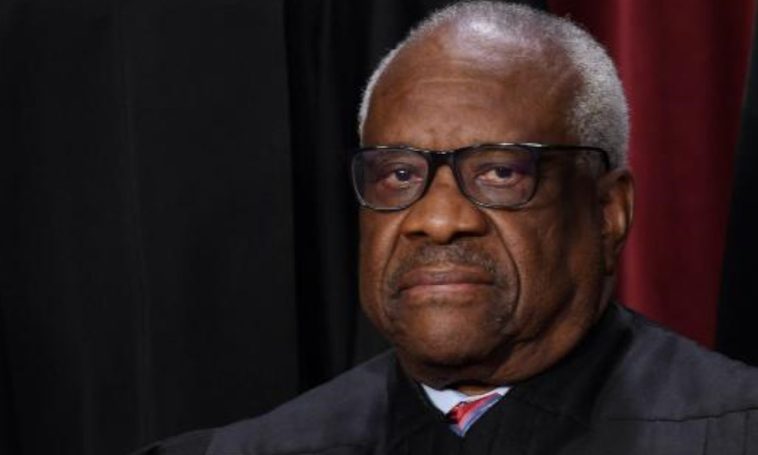The venerated Supreme Court, symbolizing the apex of judicial power, eloquently and resoundingly rejected a fringe, yet ambitious, right-wing elections hypothesis on Tuesday.
The magnificent verdict, obtained with a significant majority of 6 distinguished judges against only 3 opposing voices, demonstrates the court’s unshakable commitment to preserving the integrity of democratic processes.
Among the elderly justices, Justice Clarence Thomas, a renowned and esteemed person who is a pillar within the court’s conservative group, was deeply dissatisfied.

In a deliberately prepared dissenting statement, Justice Thomas vehemently conveyed his displeasure with the court’s judgment, arguing that the case should have been dismissed summarily at the outset.
The distinguished jurist bluntly described the majority ruling as “plainly advisory,” expressing his deep worries about the court’s authority and the apparent weightlessness of its declarations.
The acclaimed and venerable Supreme Court took a bold and unmistakable stand on this pivotal Tuesday, fiercely dismissing a strikingly flawed and deadly right-wing notion.
By rejecting this idea, which had the potential to resonate across the vast landscape of the democratic process, the Court skillfully protected the basic principles upon which our democracy is built.
And Justice Clarence Thomas, one of three justices who dissent in the case, is not pleased.
In general, the argument at the core of Moore v. Harper, known as the “independent state legislature” doctrine, would allow state legislators practically unlimited freedom to gerrymander electoral districts and upend federal elections.
The issue revolves around a gerrymandered congressional map designed by the Republican-controlled legislature in North Carolina that significantly benefited GOP candidates.
The map was challenged by voters in the state, and the North Carolina Supreme Court eventually overturned it, calling it a “egregious and intentional partisan gerrymander” that violated the state constitution.
Based on the independent state legislative principle, two state legislators petitioned the US Supreme Court to hear the case.
However, the balance of power on the North Carolina Supreme Court moved from a liberal-leaning majority to a very conservative one in April, paving the way for Republican lawmakers to draft maps disproportionately favoring their party.
With the initial case being settled in favor of the legislators, Thomas concluded that the argument before the Supreme Court was “moot.” However, a majority of his colleagues opted to hear the case — and openly rejected the argument in a 6-3 vote.

The majority judgment in the case was written by Chief Justice John Roberts Jr., who said that the Constitution “does not exempt state legislatures from the ordinary constraints imposed by state law.”
Thomas was displeased.
Thomas said in his dissent that the objective of the court is to “resolve not questions and issues, but Cases or Controversies.

“As a corollary of that fundamental constitutional principle, the Court ‘is without power to decide moot questions or to render advisory opinions that cannot affect the rights of the litigants in the case before it,” he continued.
The top court, Thomas said, was considering a decision that “has since been overruled and supplanted by a final judgment resolving all claims in petitioners’ favor.”
“The issue on which it opines — a federal defense to claims already dismissed on other grounds — can no longer affect the judgment in this litigation in any way,” he wrote. “As such, the question is indisputably moot, and today’s majority opinion is plainly advisory.”
Justices Samuel Alito and Neil Gorsuch both voted against the decision.







GIPHY App Key not set. Please check settings